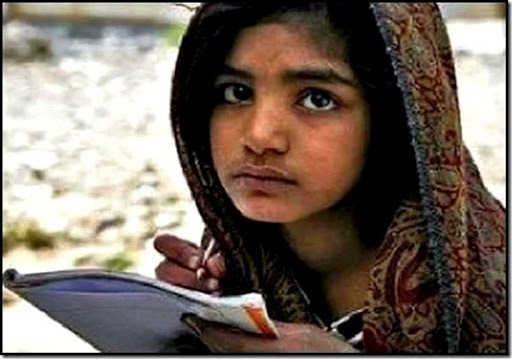UPDATES
Mob violence, human rights and Pakistan’s blasphemy laws
August 27, 2012 | Or Avi Guy

Rimsha Masih, a 12-year-old Christian Pakistani girl who, according to some reports, has an intellectual disability has been jailed for allegedly desecrating Holy Scripture, after a local cleric claimed that she burnt pages of Noorani Qaida, a children’s textbook about the Koran, along with some others papers she had swept up. According to Pakistani blasphemy laws defiling the Koran is punishable by a sentence of life imprisonment, and others forms of blasphemy can lead to a death.
On closer examination of the case, it appears likely that putting the girl, and her mother, behind bars is claimed to be for their own protection. The case draws a sad picture in which one of the most severe implications of the blasphemy laws is “mob justice.”
Rimsha was turned in to police custody by the family’s landlord Malik Amjad, but he explains that it was for her own protection as he criticised the cleric saying that “He exaggerated the incident and provoked people.” After Rimsha and her mother were jailed hundreds of Muslim protesters surrounded the police station demanding that she face charges under Pakistan’s blasphemy laws. Her family had to be put in federal protective custody with the police admitting that Rimsha was arrested in part to calm the mob while keeping the girl safe. According to human rights activists, the Pakistani police often registers blasphemy cases merely to save the accused “blasphemer” or their own officers from attack, even when evidence is weak and charges are hard to press.
Now Rimsha faces a lose-lose situation; if the case goes to trial, she is likely to face life imprisonment. If she is to be released, she is likely to be targeted by an angry mob. Officials have commented that the charges are “baseless”, which means that Rimsha and her mother are likely to be released but even if blasphemy charges are avoided, her family is unlikely to be able to safely return home. Meanwhile, hundreds of Christians from Rimsha’s neighbourhood have fled their homes, after they were terrorised and intimidated by vigilantes.
This highlights one of the main problems with the blasphemy law – it encourages extra-judicial violence, including what are basically mob lynchings, more often than court-ordered death sentences. According to reports, while nobody has been executed under Pakistan’s blasphemy laws, even suspected blasphemers are in danger of attack for the rest of their lives. Often defendants awaiting trial, or even those who have been released or acquitted, along with the acquitting judge, have been murdered or threatened with murder. Others have been forced to flee Pakistan. The most notable incidents took place last year, when Pakistani Minister of Minority Affairs Shahbaz Bhatti and Punjab Governor Salman Taseer who criticised the blasphemy law were themselves accused of “blasphemy” for doing so and killed by Islamist extremists.
Rimsha’s plight highlighted a wider problem, as expressed by Ali Dayan Hasan of Human Rights Watch: “This case exemplifies the absurdity and tragedy of the blasphemy law, which is an instrument of abuse against the most vulnerable in society.” The state’s ability to protect non-Muslim minorities in Pakistan is diminishing, allowing for wide and extreme forms of persecution. However, while Pakistan’s blasphemy law has been disproportionately used against Christians, Hindus, Shi’ites and other minority groups, some moderate and reformist Sunni Muslims have also been targeted. Human rights advocates claim that the law, which is frequently used to persecute Christians like Rimsha, has also been applied to the mentally ill, including Muslims.
Essentially, these laws mean that any individual from a vulnerable minority community can be subject to an allegation from a member of the Muslim community and as a result they will be murdered by a mob, imprisoned by the state, or at best, forced to flee into permanent exile. This gives scrupulous or extremist members of the Muslim community crushing power over members of minority groups and essentially renders the human and legal rights guaranteed to them under their country’s laws and Sharia null and void any time someone decides to use the blasphemy weapon against them.
The rise in blasphemy allegations in recent years is seen, even by moderate Muslims, as a reflection of the increase in extremism and anti-Western sentiment.
Or Avi-Guy
Tags: Afghanistan/ Pakistan





